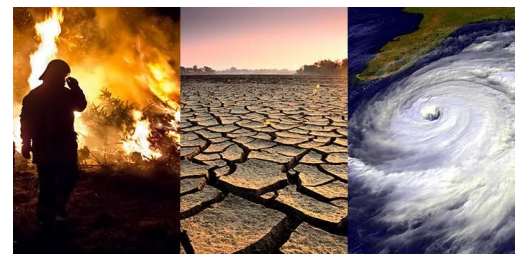By Eboigbe Cyril Zion
A Strong position held by proactivists for climate change and global warming over the years continue to warn that human activities are harmful to a safer earth with scientific evidence showing that human activities (primarily the human burning of fossil fuels) increasingly pollutes the air with the release of toxic carbon monoxide harmful to the environment with various degrees of hazardous substances, which is toxic to human and aquatic life.
One definition of climate change refers to long-term shifts in temperatures and weather conditions. These shifts may be natural such as variation in the solar cycle. But since the 1800s, human activities have been the main driver of climate change particularly due to burning fossils fuels like coal, oil and gas.
Arguably, it is believed that global warming if left unchecked could reshape the future of the earth leading to temperature changes, regions which were known to be cool might become warmer and vice-versa. Other changes expected include a warmer atmosphere due to sudden rise in the earth’s temperature, causing warmer and more acidic ocean, rise in sea levels beyond normal. Also an alarming change in precipitation patterns.
That the future of climate change will negatively impair the earth, is a function of how we respond to the earth’s plea for a reduced greenhouse gas emission. The more emissions are released into the earth’s surface the more probable the negative impacts or changes would be.
According to experts, they opined that global temperature rise is increasingly alarming and that there is about seventy-five per cent risk that temperatures globally may rise with two to three degree in the next fifty years. It will not be out of context to say the rise of just one or two degrees would be catastrophic enough to melt the Greenland ice sheet and drown the Maldives. But a three degree rise would devastate the Amazon rainforest, wipe out nearly one third of the species going extinct and dwarf crop yields as a result of changes in weather conditions.
Although the global climate goes through hot and cold cycles, but increasingly alarming is the pace of change that could cause human extinction.
According to scientists, the Agence France-Presse (AFP) conference on global warming, noted that a time frame was issued following the findings from the conference that global warming, would push outbreaks of infectious diseases, create water shortages, famine, cause drought, flooding, and catastrophic natural disaster such as hurricane and influx of refugee fleeing inhabitable regions.
Study have shown that the projected impacts on wildlife and ecosystems, food crops, water resources and economies across the earth, due to rising temperature expected in the next 10 decades would cause some species of wildlife to go extinct including human life.
Ultimately, there have been calls by supporters of climate change on global warming mounting pressure on government and multinationals, challenging them to adopt policies in favour of safe Earth for all.
Nonetheless, the calls by pro-climate activist on global warming are now beginning to gain global attention especially with the case of Nigeria where most of the oil wells are located in the Niger Delta region and had continued gas flaring activities since 1950 when it first discovered oil.
It was not until 1980’s that technology was innovated for storing and transporting the natural gas expelled during crude oil extraction. Today, due to advanced technology natural gas can be cooled and condensed into liquid form, known as liquefied natural gas (LNG).
Despite the economic advantage notwithstanding, Nigeria continues to flare much of its gas and adds to countries listed for gas emission globally.
